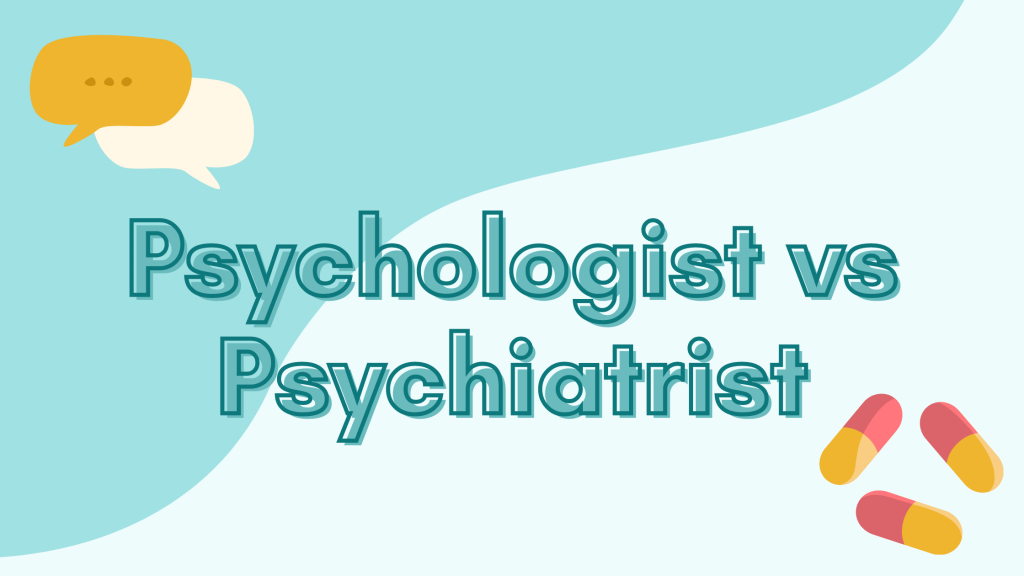Career Trends: October 5, 2022
Curated by the Knowledge Team of ICS Career GPS

Content Credit:
- Article by Mehwash Hussain, published on telegraphindia.com. Original article link.
As more individuals realise how important it is to maintain balance in all aspects of life, the field of mental health has been gaining more and more importance. In today’s world, where stress, depression and anxiety are on the rise, there is a growing need for qualified mental health professionals. Despite working in similar fields, psychologists and psychiatrists differ greatly in their professional outlooks. In fact, even among the general population, you will often find people who do not know the difference between the two.
So before you decide which career to follow – psychologist or psychiatrist – take a look at the differences and similarities to help you make a better choice.
Definition of the Professions:
Psychologist
- The study of the human mind and behaviour is known as psychology.
- Psychologists are people who work in the field of psychology and are interested in how people act, feel, and think in various social contexts.
- They are specialists in how people behave.
Psychiatrists
- Psychiatry is a speciality of medicine that focuses on identifying and treating mental health disorders.
- A psychiatrist is a doctor who specialises in the diagnosis, treatment, prevention, and study of mental disorders as well as developmental and behavioural concerns.
As the definitions show us, both professions deal with the behaviour of human beings and support their mental health, but what differs is their treatment method. Likewise, they must also be trained in different ways.
Educational Requirements:
Psychologists
- A psychologist must complete a bachelor’s, master’s, and doctoral degree in psychology.
- Before receiving their licence to practise, candidates usually undergo a postdoctoral fellowship to gain more supervised experience, as well.
Psychiatrists
- Unlike a psychologist, a psychiatrist is actually a practising medical doctor.
- They need to have an MD (doctor of medicine) or a related medical degree in the area of mental health.
- After getting a licence, the psychiatrist continues practising in a hospital for a minimum of 4 years while being supervised by senior physicians.
- Thereafter, they can start their own medical practice.
Mode of Treatment:
The method each takes to treat mental problems is where the two stand apart, as we have mentioned earlier. Here is how they differ:
Psychologist
- Psychologists are trained in psychotherapies like psychoanalysis, cognitive behavioural therapy, psychodynamic therapy, humanistic therapy, etc.
- They work towards supporting and treating a patient without medicines or invasive means.
- They may work with patients one-on-one or in groups.
- They also play a major role in diagnosing mental health problems by analysing symptoms.
Psychiatrists
- In their approach to treatment, psychiatrists prioritise the use of medications.
- Due to their greater expertise and in-depth knowledge of biology and neurochemistry, psychiatrists frequently treat patients exclusively through the prescription of medication.
- Psychiatrists also have the ability to offer the following additional forms of care such as the incorporation of psychology, electroconvulsive treatment and stimulating the brain (ECT).
Job Role:
Psychologists
- Psychologists concentrate on therapies that are based mainly on talking or interacting with the patient(s), such as individual and group therapy.
- The goal of therapy is to teach patients coping mechanisms that help them deal with a range of mental health issues and life difficulties.
Psychiatrists
- Mental, emotional, and behavioural illnesses are evaluated, diagnosed, and treated by psychiatrists.
- As medical professionals who can order or carry out a number of physical and/or psychological tests, psychiatrists use these means to diagnose structural or chemical causes that could manifest as mental health disorders.
- Psychiatrists use a combination of test results, discussions about symptoms, medical history, and family history to arrive at a final diagnosis.
Similarities between Psychologists and Psychiatrists:
Both psychologists and psychiatrists concentrate on their patients’ behavioural demands and mental illnesses. In this regard, their work is similar, but how they approach diagnosing and treating problems is where they start to differ.
As many people with mental problems respond well to both medicine and different types of therapy, a psychiatrist and a psychologist may collaborate in the treatment of patients.
Both psychologists and psychiatrists are capable of treating a variety of different mental health issues, the most common ones being:
- Problems with sleep and insomnia
- Addiction-related and drug disorders
- Mental health problems arising from abnormalities
- Psychosis and Schizophrenia
- Dyslexia and other learning disorders
- Obsessive Compulsive Disorder (OCD)
- Post-traumatic stress disorder (PTSD)
However, both psychologists and psychiatrists have areas of specialisation and are able to provide better support to specific patients.
…
Have you checked out yesterday’s blog yet?
The Fastest Way to Get Smarter is Actually Simple
(Disclaimer: The opinions expressed in the article mentioned above are those of the author(s). They do not purport to reflect the opinions or views of ICS Career GPS or its staff.)




One Reply to “Psychologist and Psychiatrist: What is the difference?”